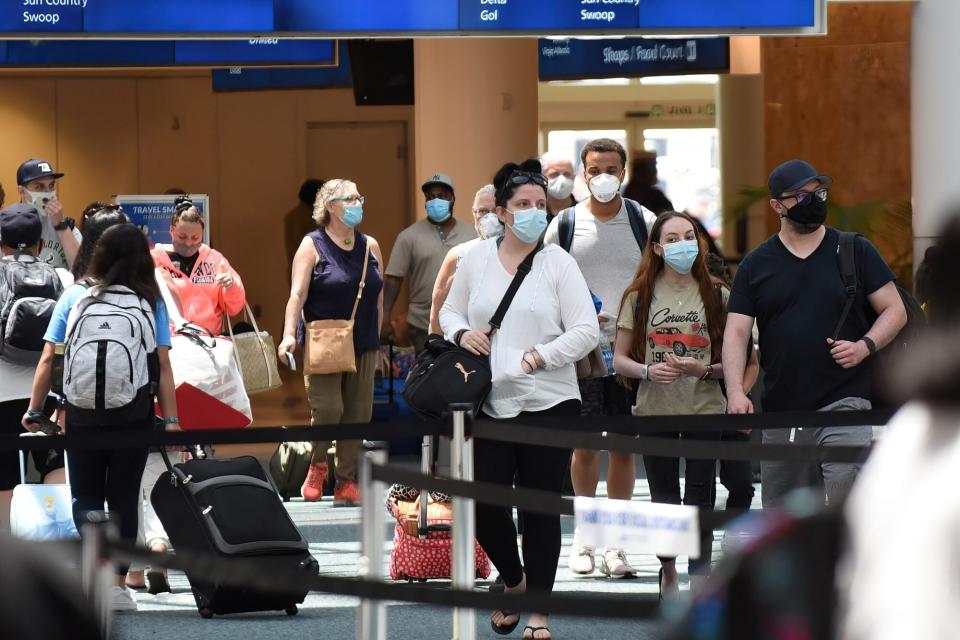International Travelers Heading to the U.S. Can Now Test for COVID-19 at Home Before Their Flight
International travelers can now use an at-home test as proof they tested negative for the coronavirus before flying to the United States, according to updated guidance from the Centers for Disease Control and Prevention.
The new directive allows travelers to use any qualifying at-home nucleic acid amplification or antigen test that has been issued an Emergency Use Authorization by the Food and Drug Administration.
In order to qualify, the test must have a telehealth service affiliated with the manufacturer and be supervised virtually by a telehealth provider, according to the CDC. The telehealth provider must confirm the person's identity, observe them taking the test, and confirm the result through an audio and video connection.
Airlines must then verify the results report.
Several such test kits have been approved in the U.S., including some that are offered by airlines.
Since January, all travelers entering the U.S. from another country have been required to test negative for COVID-19 with either a NAAT or rapid antigen test within three days of boarding a flight. While fully-vaccinated travelers don't have to quarantine when they arrive, they are not exempt from the testing requirement.

Paul Hennessy/SOPA Images/LightRocket via Getty Images
"This is an encouraging step in facilitating the international travel process, while continuing to prioritize the safety and well-being of all travelers and employees seeking entry to the U.S.," the trade group Airlines for America told USA Today about the approval of at-home tests.
Beyond at-home options, travelers can get tested at their destination with several hotels throughout the world offering on-site COVID-19 testing to guests.
The new guidance may make international travel easier for people, but that doesn't mean the federal government is encouraging such trips. Last month, the State Department added dozens of countries to its "Level 4" classification, warning people "Do Not Travel" there. The decision put the department more in line with the CDC's recommendations by destination.
Alison Fox is a contributing writer for Travel + Leisure. When she's not in New York City, she likes to spend her time at the beach or exploring new destinations and hopes to visit every country in the world. Follow her adventures on Instagram.

